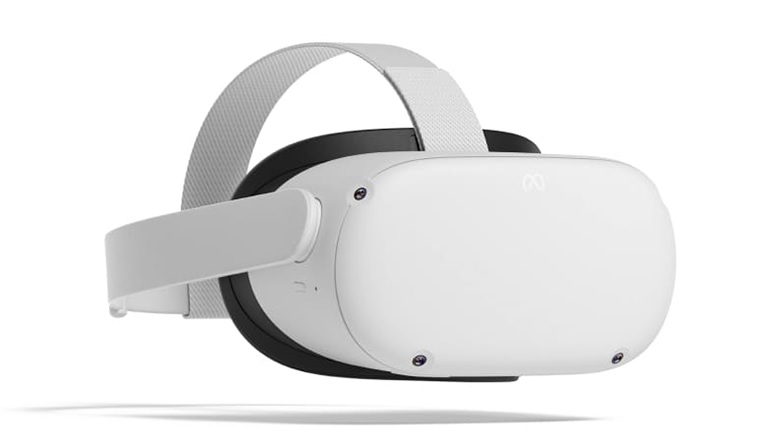
In Virtual Reality News
July 27, 2022 – Meta has this week announced that starting in August, its Meta Quest 2 Virtual Reality (VR) headset will cost USD $399.99 and USD $499.99 for the 128GB and 256GB versions respectively. Alongside these changes, the company will also be increasing the prices for Meta Quest 2 accessories and refurbished units.
According to Meta, it is making the change in order to help the company to continue to invest for the long term and keep driving the VR industry forward, as well as to further help nurture the company’s own VR ecosystem, which includes hardware, games, and research and development projects.
Meta cited rises in the cost of making and shipping its products as part of the reason for the increase, but by adjusting the price of the Quest 2, the company can continue to grow its investment in research and new product development that is helping to push the VR industry further.
In a blog post on the matter, Meta stated: “VR’s momentum is undeniable. From gaming and productivity to fitness and beyond, VR has become increasingly popular as it positively impacts the ways we work, play, and connect with each other. People have spent over [USD] $1 billion on Meta Quest apps, helping to fuel developers’ businesses as they deliver the games and experiences that make VR great.”
As part of the price rise, the company has offered would-be buyers a seemingly conciliatory deal that will allow them to download the popular VR rhythm game Beat Saber at no additional cost for 14 days following activation of their new headset. This offer will only apply to people who purchase a new Meta Quest 2 from August 1, 2022 through December 31, 2022 and activate their device before January 31, 2023 using an account that does not already have Beat Saber enabled.
Later this year, Meta will be launching its high-end headset, Project Cambria, and the company plans to ship new generations of Meta Quest after that. Meta highlighted that at its Reality Labs Research division, there are teams dedicated to advancing the state of the art in VR displays, audio, lifelike avatars, haptics, wrist-based interfaces, and more. Plus, the company noted that it has a robust lineup of exciting content and gaming titles coming to the Quest 2, including: Ghostbusters VR, Among Us VR, The Walking Dead: Saints & Sinners – Chapter 2: Retribution, BONELAB, and NFL PRO ERA—VR’s first officially-licensed NFL game. Obviously, funding all of this R&D, as well as hardware and software development comes at a cost, and Meta is likely looking for ways to recuperate some of that expense.
After launching in October 2020, analysts suggested in June 2022 that the company had sold 14.8 million Quest 2 units in the 20 months that the device had been on sale. Averaging out at just under 750,000 devices a month, this extra $100 that the company is charging per device could obviously help, but is unlikely to really dent the billions of dollars Meta has already spent in building its VR ecosystem.
Still, even with these pricing changes, Meta argues that the Quest 2 still continues to be “the most affordable VR headset with a comparable feature set on the market.” And to be fair to Meta, the rollout of software updates has been fairly constant, and many of the updates in the last year have offered major improvements to the user experience and interface, from hand tracking and Air Link to Meta Horizon Home. The doesn’t plan on stopping with these updates either and noted: “We’ll continue shipping exciting new software updates to improve our products on a regular basis.”
The company’s post concluded: “Now’s the right time for us to double down on our efforts to push the state of the art forward. We’ll continue working alongside the developers, early adopters, and die-hard fans who play and build for VR every day, and we can’t wait to keep sharing the work we’re doing at Reality Labs on the road to the metaverse.”
Image / video credit: Meta / YouTube
About the author
Sam Sprigg
Sam is the Founder and Managing Editor of Auganix. With a background in research and report writing, he has been covering XR industry news for the past seven years.




